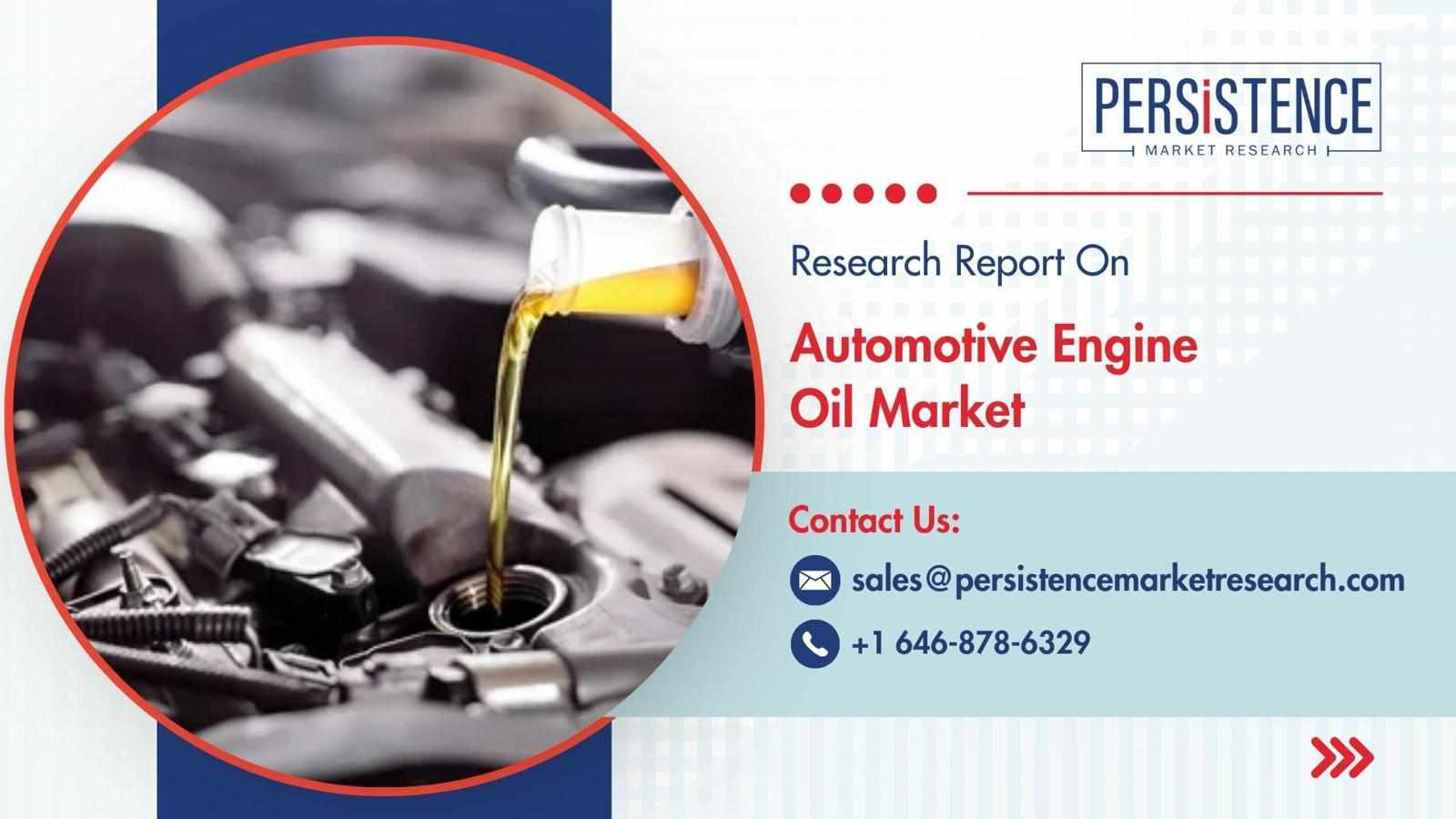
Introduction
Air pollution is a growing global concern, with rising levels of pollutants adversely affecting human health, the environment, and industries reliant on clean air. One sector significantly impacted by air pollution is the automotive industry, particularly in the market for automotive filters. With stricter emission regulations and increasing consumer awareness about vehicle maintenance, the demand for automotive filters is on the rise. According to Persistence Market Research's projections, the latest study on automotive filters reveals that the global market size will grow from US$ 15.7 billion in 2025 to US$ 23.3 billion by 2032, registering a steady CAGR of 5.8%.
This blog explores how increasing air pollution is fueling the growth of the automotive filter market, key trends shaping the industry, and what the future holds for this essential automotive component.
The Rising Threat of Air Pollution
Air pollution has reached alarming levels worldwide due to rapid industrialization, urbanization, and vehicular emissions. The primary sources of air pollution include:
Vehicle exhaust emissions
Industrial emissions
Agricultural activities
Deforestation and land-use changes
Among these, vehicular emissions contribute significantly to air pollution, releasing harmful pollutants such as carbon monoxide (CO), nitrogen oxides (NOx), particulate matter (PM), and volatile organic compounds (VOCs). Governments and environmental agencies worldwide are imposing stringent regulations to curb emissions, leading to a surge in demand for efficient automotive filtration systems.
How Automotive Filters Combat Air Pollution
Automotive filters play a critical role in reducing emissions and improving vehicle performance by trapping harmful pollutants and preventing their release into the environment. These filters primarily include:
1. Air Filters
Air filters in vehicles prevent dirt, dust, and debris from entering the engine. Clean air intake ensures better fuel combustion, reducing emissions and improving engine efficiency. With worsening air quality, demand for high-performance air filters is growing significantly.
2. Cabin Air Filters
Cabin air filters enhance in-vehicle air quality by filtering out pollutants, allergens, and fine particulate matter. This is crucial in heavily polluted urban areas, where drivers and passengers are constantly exposed to hazardous air conditions.
3. Oil Filters
Oil filters remove contaminants from engine oil, ensuring smooth engine operation and preventing premature wear. Cleaner oil helps in reducing engine emissions and enhancing vehicle longevity.
4. Fuel Filters
Fuel filters eliminate impurities from fuel before it reaches the engine, ensuring better combustion and reduced exhaust emissions. As fuel quality varies globally, the need for efficient fuel filtration systems is rising.
Market Trends Driving Growth
Several key trends are contributing to the expansion of the automotive filter market:
1. Stricter Emission Regulations
Governments worldwide are implementing stringent emission norms, such as the Euro 6 and BS-VI standards, requiring advanced filtration systems to minimize pollutants from vehicles. Compliance with these regulations is driving increased adoption of high-quality automotive filters.
2. Growing Awareness of Vehicle Maintenance
Consumers are becoming more conscious of the importance of regular vehicle maintenance, leading to increased demand for replacement filters. Proper maintenance not only enhances vehicle performance but also contributes to lower emissions.
3. Rise in Electric Vehicles (EVs)
While EVs do not require traditional oil or fuel filters, the growing EV market is driving demand for high-efficiency cabin air filters. Additionally, hybrid vehicles still require conventional filtration systems, ensuring steady market growth.
4. Technological Advancements
Manufacturers are innovating to develop advanced filtration solutions, such as nanofiber filters and HEPA cabin filters, that offer superior filtration efficiency. These advancements cater to both consumer demand and regulatory requirements.
5. Expanding Automotive Industry
The global automotive industry is witnessing steady growth, especially in emerging economies where vehicle ownership is rising. Increased production and sales of automobiles directly boost the demand for automotive filters.
Regional Market Analysis
The automotive filter market is expanding globally, with key growth regions including:
North America
Strong regulatory framework for emissions
High consumer awareness regarding vehicle maintenance
Presence of major automotive filter manufacturers
Europe
Stringent Euro 6 emission standards
Growing adoption of electric and hybrid vehicles
Increasing demand for advanced filtration solutions
Asia-Pacific
Rapid urbanization and industrialization
Rising vehicle sales in countries like China and India
Increasing focus on air pollution control measures
Latin America & Middle East & Africa
Gradual implementation of emission norms
Growing automotive aftermarket sector
Rising consumer preference for fuel-efficient vehicles
Future Outlook
The automotive filter market is poised for significant growth in the coming years. Key factors shaping the future include:
Continued advancements in filtration technology
Increased investment in sustainable and eco-friendly filter solutions
Rising demand for air purification in vehicles due to worsening environmental conditions
With the automotive filter market projected to reach US$ 23.3 billion by 2032, manufacturers and stakeholders must focus on innovation and sustainability to meet evolving consumer and regulatory demands.
Conclusion
The alarming rise in air pollution is driving the demand for automotive filters, as they play a vital role in reducing emissions and improving vehicle performance. With stringent regulations, technological advancements, and growing consumer awareness, the automotive filter market is expected to witness steady growth. As the world moves towards cleaner transportation solutions, efficient filtration systems will remain a crucial component in the fight against air pollution.




















Write a comment ...